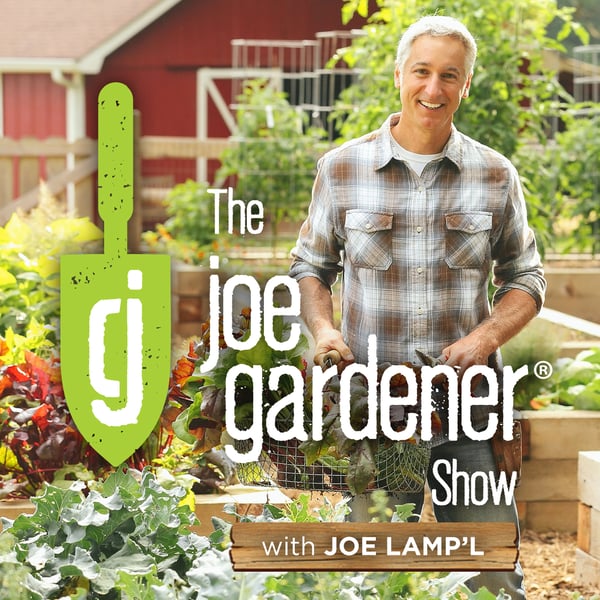417-Understanding Phenology, the Biological Rhythms of the Seasons
The joe gardener Show - Organic Gardening - Vegetable Gardening - Expert Garden Advice From Joe Lamp'l
Joe Lamp'l
4.6 • 1.7K Ratings
🗓️ 15 May 2025
⏱️ 57 minutes
🧾️ Download transcript
Summary
Phenology is a field of study that explains the seasonal changes and behaviors seen in plants and animals. Unfortunately, due to climate change, many phenological events are occurring earlier or later, which disrupts relationships between co-dependent plants and animals. Joining me on the podcast to explain what gardeners need to know about phenology is ecologist and phenology expert Theresa Crimmins.
Podcast Links for Show notes
Download my free eBook 5 Steps to Your Best Garden Ever - the 5 most important steps anyone can do to have a thriving garden or landscape. It’s what I still do today, without exception to get incredible results, even in the most challenging conditions.
Subscribe to the joegardener® email list to receive weekly updates about new podcast episodes, seasonal gardening tips, and online gardening course announcements.
Check out The joegardener® Online Gardening Academy for our growing library of organic gardening courses.
Follow joegardener® on Instagram, Facebook, Pinterest, and Twitter, and subscribe to The joegardenerTV YouTube channel.
Transcript
Click on a timestamp to play from that location
| 0:00.0 | Hi, everybody. This is Joe Lampel, the Joe behind Joe Gardner, and welcome to the Joe Gardner Show. |
| 0:05.9 | Today, we're diving into the fascinating science of phenology, the study of seasonal changes in plants and animals, like when flowers bloom, birds migrate, or leaves change color. |
| 0:17.0 | These natural rhythms aren't just poetic signs of the season, though. |
| 0:20.5 | They're powerful indicators of how ecosystems are responding to our changing climate. |
| 0:25.9 | And to help us explore this living calendar of nature, I'm joined by Dr. Teresa Krimands, |
| 0:31.1 | author of Phonology, an Integrative Environmental Science, |
| 0:34.8 | and Director of the USA National Phonology Network. |
| 0:38.5 | Teresa is the leading voice in connecting everyday observations with big-picture science, |
| 0:43.8 | and through her work, she bridges citizen science, ecology, and climate research, |
| 0:48.8 | empowering people to pay closer attention to the natural world and contribute to it. |
| 0:54.1 | Today's conversation will resonate |
| 0:55.9 | with you whether you're a backyard gardener, a weekend warrior, nature lover, or someone |
| 1:00.7 | simply curious about why Spring feels differently lately. This conversation will give you a deeper |
| 1:06.1 | appreciation for nature's timing and how much it can tell us if we know where to look. |
| 1:11.5 | It's a topic that in a few past episodes has received a brief mention, but today I wanted |
| 1:16.7 | to dedicate an entire episode to what phonology really means, along with some specific |
| 1:22.4 | examples of how plants and animals are impacted by our changing climate. So let's get |
| 1:27.1 | started. And as we do, |
| 1:28.9 | thanks to our sponsors for today's episode, Malorganite and Dram. If you're looking for non-burning |
| 1:35.0 | slow-release, organically derived source of nitrogen fertilizer that's great for your lawn and landscape, |
| 1:40.9 | and anywhere you need a little extra nitrogen boost, malorganite is a great product for that. |
| 1:45.9 | I use it all around the garden farm here, and I have been for years. |
... |
Please login to see the full transcript.
Disclaimer: The podcast and artwork embedded on this page are from Joe Lamp'l, and are the property of its owner and not affiliated with or endorsed by Tapesearch.
Generated transcripts are the property of Joe Lamp'l and are distributed freely under the Fair Use doctrine. Transcripts generated by Tapesearch are not guaranteed to be accurate.
Copyright © Tapesearch 2025.

